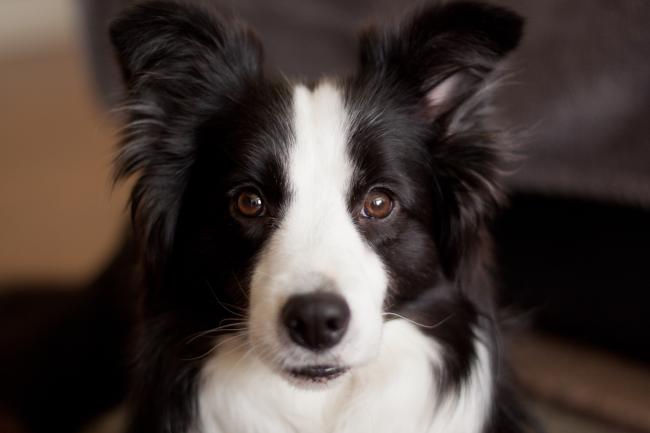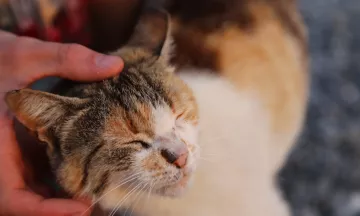Border Collie Retriever: Breed Information

Fact sheet
- Breed name: Border Collie
- Classification: Pastoral / herding dogs
- Size: Medium
- Coat: Medium to long, straight fur, very thick
- Colour: Black, white, red, merle, bi-colour and tri-colour
- Personality: Very high energy
- Family-friendly: Best raised with their family from a young age, or introduced only to older children
- Friendly with other pets: Can be friendly with other pets if raised with them from a young age
Border Collie Background
The Border Collie originated in the border region between Scotland and England in the 18th Century. Their primary role was to round up sheep, but Border Collies are capable of rounding up many types of livestock. The breed only arrived in Germany in the 1970s and have been an iconic working dog ever since!
Border Collie’s are highly intelligent and very energetic. As such, they are used in many areas of service including search and rescue and police work.
Physical Appearance
Border Collie’s are known for their distinct fluffy coat, pointed ears that flop forward and a slender build. Their working origins means that the breed is incredibly fast and agile. The breed looks similar to an Australian Shepherd or Collie, but with a slightly longer, lighter body.
Border Collies usually weigh around 12 kg and 20 kg and stand up to 55cm tall. Their medium-length coat can come in both rough or smooth varieties. The breed comes in many colours, including black, white, red, merle and a mix of any of these shades. Black and white is the most famous colour combination.
Behaviour and Temperament
The Border Collie has an intense, energetic personality that can be difficult to tire out! Furthermore, they can be very protective of their family and great around kids and other pets. Likewise, their tendency to bark makes them a very effective watchdog. However, it’s best to raise them alongside their fellow family members and be cautious introducing them to strangers.
The herding instinct of the breed can lead them to be nippy with strangers or unfamiliar dogs or children. Therefore, be diligent when you take your Border Collie out for exercise and be sure to train them to return when called.

Training and Exercise
Border Collies are a very high-energy dog and need training and socialising from the start. As such, enrol your Border Collie into puppy preschool as soon as it’s old enough. You may also want to speak to a dog trainer about ongoing training.
The Border Collie must be exercised daily for at least 40 minutes at a time. It’s essential that they are trained to return when called, as they are known to ‘herd’ cars, joggers or other dogs.
Border Collies are intensely smart dogs that thrive on being given mental challenges and jobs to do. As such, this is a breed that can be quite demanding of time and attention and not suitable for busy pet owners. Despite this, the rewards for dedicated owners are many. For example, Border Collie’s can be taught to do some truly impressive tricks!
Living with a Border Collie
As the Border Collie is a working breed, they are best kept on a property with access to a large, escape-proof outdoor area. Therefore, apartment living is definitely not ideal for this breed.
A happy Border Collie is able to run, explore, dig and play freely throughout the day. Confined living conditions can lead the breed to become unhappy or display destructive behaviour. Furthermore, it’s important to keep your Border Collie in a secure location, as the breed is a clever escape artist.
Border Collie Health
Border Collies are hardy dogs that aren’t prone to many ailments. This is especially the case if you adopt a healthy dog from a reputable breeder. A Border Collie can be expected to live to about 12-15 years of age.
Despite this, there are just a couple of potential hereditary conditions that are worth keeping an eye out for as your dog gets older.
Some health conditions that can occur in Border Collies include:
- Hip dysplasia
- Allergies and skin conditions
- Eye issues - such as Collie Eye Anomaly and Progressive Retinal Atrophy (PRA)
- Epilepsy
- Ceroid Lipofuscinosis (CL)
- Osteochondrosis Dissecans (OCD)

Grooming
Border Collies have an amazing, temperature-regulating coat that will need a good brush every week or so. This might increase during shedding season or during the summer. However, there is no need to over-groom your Border Collie.
The best thing to do is aim to remove dead and matted fur, but let the natural fur oils do their job. Bathing should be kept to only once every few months at most, using a very gentle dog shampoo.
Does your Border Collie need some high-intensity exercise while you are out? No worries! An experienced Pawshake dog sitter can entertain your dog while you are at work or holiday. Start searching for a perfect dog sitter today.







